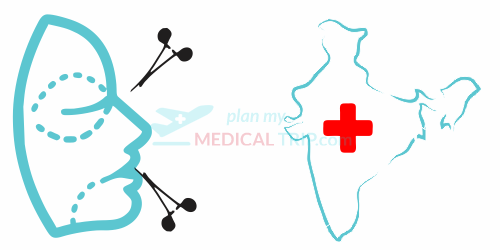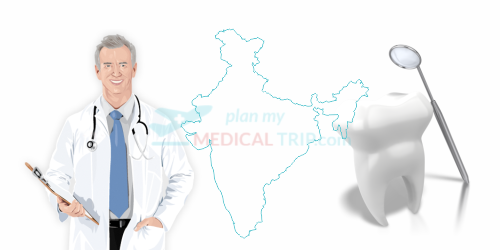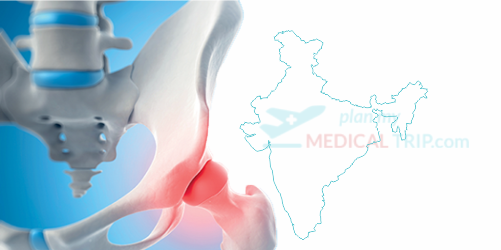
Admin
June 06, 2017

How to Deal with Depression After Surgery?
How to Deal with Depression After Surgery?
Anne (29) recently underwent knee replacement surgery in India due to an injury. Although she is recovering, she is unable to deal with the post-surgical pain and movement restrictions. Being young, she wants to socialize, meet her friends and live life wholeheartedly. However, currently, she isn’t able to do it. Her family is supporting her in every way possible. But she still feels alone and left out. That’s pushing her into depression, further worsening the situation!
Post-surgery depression is common. Statistics vary depending on the surgical procedure people undergo and its impact on their lives. However, 12-50 percent of people experience it at various stages. While some feel left out, many others find it challenging to deal with the post-surgery physical and emotional trauma.
Lately, if you or your loved one underwent surgery and are struggling with depression, don’t feel alone. You can overcome it with the right measures and approach. Here are six vital tips to deal with post-surgery mental health symptoms.
Overcoming Post-Depression Surgery
Specific mental health treatments may vary depending on the extent of depression and the patient’s overall condition. Expert consultation, guidance, and hand-holding are imperative to win the battle against post-surgery depression. However, here are some generic measures that can make a difference.
Stay Connected – Socialize
Post-surgery loneliness is common. However, isolation beyond a point can worsen depression. One of the ways to overcome it is socializing and staying connected with family and friends. Talking to well-wishers over the phone or meeting them in person can make a significant difference. Furthermore, joining support groups who’ve undergone similar surgeries can also usher positivity.
Maintain a Routine
Most people experiencing post-surgery depression fail to follow and maintain a specific routine. It is either out of despair or lack of encouragement. Nevertheless, maintaining a routine is one of the ways to end depression. A structured routine, including exercises, diet, therapies, hobbies, etc., provides a sense of normalcy and control. It accelerates recovery and helps you resume normal life quickly.
Indulge in Physical Activities
The body undergoes numerous changes after surgery, making it difficult for the person to move or perform routine movements. Hence, post-surgery pain and movement restrictions are common and normal. However, staying stationary can worsen the condition, delay recovery, and make you feel more depressed. Instead, following doctor-recommended exercises under expert supervision can strengthen your body and elevate your mood, enabling a quicker recovery.
Mental Health Consultation
Often, people don’t express their grief and pain and continue struggling with them in isolation. However, that doesn’t help at all! If you think you need someone with whom you could discuss your state of mind, you can consult experts or professional therapists. These people will listen to you and provide emotional support, helping you deal with depression better. In some cases, they may recommend anti-depressants or other medications to manage various symptoms.
Have Realistic Goals
Setting realistic goals is one of the keys to avoiding and overcoming depression after surgery. A 60-year-old who has undergone hip replacement in India cannot expect to walk normally in a week or so. And if they do, they are likely to feel disappointed and eventually depressed. Thus, you must set goals you can achieve and celebrate small milestones. Understanding that recovery takes time can sort many things out!
Engage in Complementary Therapies
Complementary therapies like music, art, etc., help create outlets for expressing emotions and reducing stress. These support regular treatment and help enhance the overall outcomes. Technology can be really helpful in this as well. Therapy has become very accessible and easily available online through various apps, AI chatbots, etc. Like infiheal’s Healo, their team of diligent Psychologists, and AI experts have worked tirelessly to bring to you HEALO, the world’s most advanced AI mental health and life Coach. HEALO as an AI chatbot has been trained hard by experts to understand the intricacies of the complex web of human mind and strives to bring valuable insight forward to you in your journey of healing and wellness. You can harness the power and capabilities of technology to recover more quickly.
Conclusion
Post-surgery is a temporary phase. Besides, it isn’t the end of the road but a new beginning. So, the more optimistic you are, the more emotionally healthier you stay. As for treatment and surgeries worldwide, Plan My Medical Trip has got you. With our extensive tie-ups, end-to-end support, and amazing deals, we deliver seamless medical treatment experiences. Trusted by thousands, we are here to serve you. Email us at info@planmymedicaltrip.com to learn more or connect with our experts.
Visit Healo by InfihealRead more... 0 comments

Admin
June 06, 2017
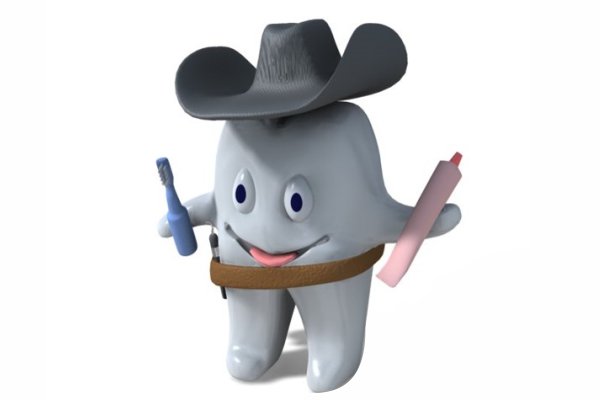
General Dentistry By Dr Vishal Bhor
General Dentistry is often the first line of defence for the oral health and hygiene of a person. A general dentist looks at the entire mouth and surrounding area to make certain that a person is healthy and that there are no immediate problems. There are many procedures that are involved in general dentistry from simple teeth cleanings up to placing fillings and crowns. If a problem seems to be very serious then it is possible that a general dentist might refer a patient to a specialist that has training in a single area. It is in this way that a general dentist maintains the overall health of the patient.
Many people are familiar with a general dentist because they often perform the basic dental jobs that must be done every year. The most important thing they can do is to clean the teeth and keep them healthy. Teeth that have been properly cleaned help to prevent more serious problems in the mouth like cavities and gum disease. By performing procedures like a tooth extraction a dentist is able to reverse some types of damage that could potentially develop into an even more serious problem.
So in order to take care of your oral health Plan My Medical Trip is pleased to announce Dr. Vishal Bhor Dental Clinic at your service. Dr. Vishal Bhor a dentist by profession with experience and serving since last 10 years in PUNE, Maharashtra. If looking for dental treatment check out his exclusive deals on Plan My Medical Trip Website. Book your appointments and get it treated by Vishal Dental.
Read more... 0 comments
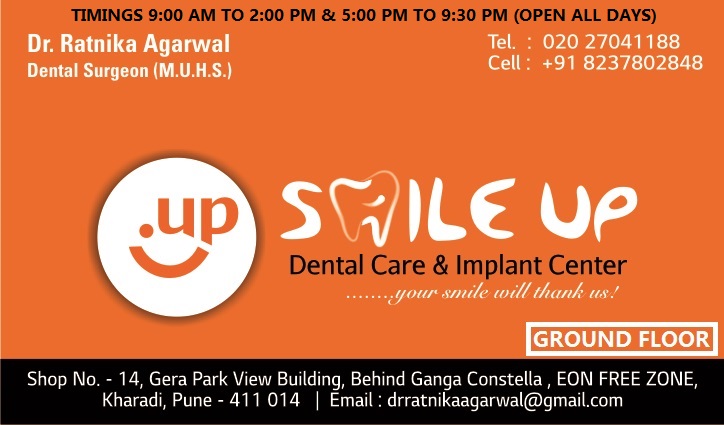
Smile Up Dental Care & Implant Center
November 26, 2016
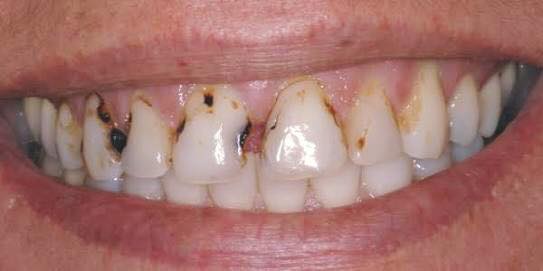
You Might Be More Prone to Dental Cavities !
You brush daily and don't snack on sugary treats, yet you've had your fair share of cavities. Your friend, on the other hand don't follow dental hygiene and lives on energy drinks and junk food, yet rarely has a cavity. What could be the reason? Cavities, which result from a disease process called dental caries, are areas of decay caused by certain oral bacteria. As the decay progresses, the bacteria can eventually invade the living portion of the tooth (dentin and pulp) and is considered a bacterial infection. At that point professional dental treatment is required to remove the infection, stop the disease process and seal the tooth. This disease process requires certain combinations of conditions in order to progress. So it's likely that you have more of those conditions, or risk factors, than your friend does. Don't beat yourself up; while there are lots of things you can do to minimize risks, there are also factors that aren't so easily controlled. Tooth Decay Risk Factors
Let's take a look at those risk factors:
Oral Bacteria:- Cavities start with bacteria that build up on tooth surfaces in a sticky film called plaque where they feed on sugars and carbohydrates from the foods/beverages we consume, creating acids in the process. Acids dissolve the mineral bonds in the protective layer of tooth enamel, which makes it easier for bacteria to penetrate what is otherwise the hardest substance in the human body and infect the tooth. Your unique oral "microbiome" make-up could have more or less of the microbe species implicated in dental caries, and some strains of the same bugs are more aggressive than others.Dental Hygiene:- Brushing and flossing correctly and regularly helps dislodge bacterial plaque and trapped food particles. Regular checkups and professional cleanings are also important to remove plaque that has hardened into "tartar."
Diet:-Minimizing your intake of sugary foods and carbohydrates reduces the availability of fuel for cavity-causing bacteria. Meanwhile, acidic foods and beverages can erode enamel, and the more frequently they are consumed, the less opportunity saliva has to restore the mouth to its normal pH.
Dry Mouth:-Saliva contains minerals that help neutralize acids and rebuild tooth enamel. Without a healthy flow, your ability to prevent decay is compromised. Certain medications, chemotherapy and some diseases can cause dry mouth. Drinking lots of water and using enamel-fortifying mouth rinses can help counter the effects.
Tooth Shape:-Tooth decay is most likely to develop in back teeth - molars and bicuspids (premolars) - where the tiny fissures on their biting surface tend to trap food and bacteria. Genetics determines how deep your fissures are.
Gum Recession:-Receding gums expose the tooth root, which isn't protected by enamel and therefore more susceptible to decay.
Other Factors:-Gastro-esophageal reflux disease (GERD) and vomiting can create highly acidic conditions in the mouth. Retainers, orthodontic appliances and bite or night guards tend to restrict saliva flow over teeth, promoting plaque formation; fixed appliances like braces can make it more difficult to brush and floss effectively.
View Deals offered by Smile Up Dental Care and Implant Center
Read more... 0 comments

Smile Up Dental Care & Implant Center
November 26, 2016

Eye Opening Facts About Dental Implants
Dental implants tend to be far more durable than other tooth replacement devices, like dental bridges and dentures. In fact, implants can last for a lifetime if the conditions are appropriate to support implant placement and the patient takes good care of the implants after they have been placed. But it is important to remember that, just like any other surgical procedure, there are no guarantees to extended long-term results.
Initially, there must be adequate bone to support osseointegration in order for the patient to have long-term dental implant success. After the oral surgery in which the dental implants are placed, the surrounding bone forms a bond with the implant’s titanium surface. That process renders the implant a fixture in the mouth and gives the implant its durability.
However, if there is not enough bone to form a strong bond, the implant can fail. If you have already lost a fair amount of bone at the implant site, we at Smile Up Dental Care & Implant Center determine that you are not an immediate candidate for implant placement.
In these cases, an additional oral surgery procedure can be performed to graft bone into the implant site to give the patient enough bone material to qualify for implant placement.
After the patient has healed sufficiently from that bone graft, the oral surgeon at Smile Up Dental Care & Implant Center can then move forward with placing the dental implants in the jaw.
Successful osseointegration is not the only factor in dental implant longevity, however. If gum disease develops at some point and advances, it can attack the bone, putting the stability of an implant at risk. This is why it is so important for patients to keep up good oral hygiene habits at home and continue to follow up with a dentist for routine care. Preventing gum disease can also help you to maximize the lifespan of your dental implants.
View Deals offered by Smile Up Dental Care and Implant Center
Read more... 0 comments

Smile Up Dental Care & Implant Center
November 26, 2016
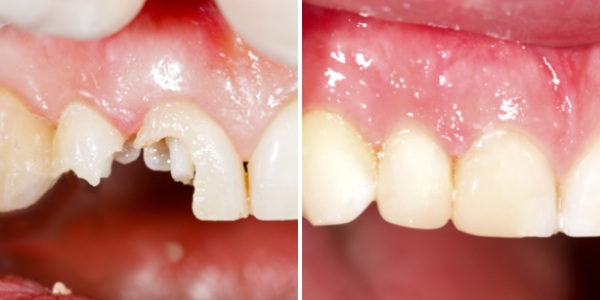
Tooth Contouring & Reshaping
Sometimes little defects in teeth can attract more than their fair share of attention. The eye often seems drawn to the tiny chip in a front tooth; the slight mismatch in tooth size among adjacent teeth; the extra-pointy canine.
Tooth contouring involves removing a tiny amount of tooth enamel with a drill to sculpt a more pleasing shape and make the tooth fit in better with its neighbors. The tooth is then polished for a smooth finish. The procedure is most often used on the upper front incisors and canines, which are your most visible teeth.
Cosmetic problems that can be corrected with tooth contouring include: small chips, uneven tooth length, slight overlaps, and tooth edges that are too flattened or pointy. It can even be used to correct minor bite problems from teeth touching unevenly during contact. Conversely, your teeth should not be reshaped if any bite imbalances could result from it. In that case, one of several other highly effective cosmetic dental procedures would be recommended. Tooth contouring can also be used to give teeth a more feminine or masculine shape, simply by rounding or squaring the edges.
What to ExpectThe first step in the contouring procedure is to examine your teeth and diagnose how the reshaping will accomplish your goal of smile enhancement or correct a bite problem if you have one. This will ensure that the teeth being reshaped will not only look better but also will be healthy. Sometimes a reshaping of the root surfaces is required to protect you from gum disease. In that case, an x-ray may be necessary to isolate and protect the sensitive inner tissue (the pulp). However, most often tooth contouring only involves the removal of a bit of enamel - the hard outer covering of the tooth. Because enamel is not living and contains no nerves, you will likely not need even a local anesthetic.
You will probably feel some vibration as your tooth is gently sculpted, and then polished smooth. Reshaping one tooth usually takes less than half an hour - and the results will be obvious as soon as you look in the mirror! Sometimes reshaped teeth can be a little sensitive to hot or cold after the procedure, but this should last no more than a day or two.
Tooth contouring can be combined with whitening for a dramatically younger-looking smile. It’s also often used in conjunction with cosmetic bonding or dental veneers - both of which can be used to reshape teeth with larger imperfections.
View Deals offered by Smile Up Dental Care and Implant Center
Read more... 0 comments

Smile Up Dental Care & Implant Center
November 26, 2016

Dental Tips for When You Go on a Vacation
Your Toothbrush:
Don't leave home without itStick to Your Routine:
Continue to brush your teeth at least twice per day and floss daily. Carry travel-sized packets of floss or dental picks in your purse or pocket if you’ll be out for most of the day. If you’re travelling, a collapsible toothbrush and a roll of floss fit nicely into your purse or carry-on luggage. If you have a cottage, stock up on toothbrushes, floss and toothpaste for the season.If you plan on participating in any sport or activity where there is a strong chance for contact with other participants or hard surfaces - basketball, cricketball or skating in the summer - you may want to talk to your dentist about a mouth guard.
Be Prepared:
Do your research before your trip on the dental care available in the area where you will be staying. This will save you precious time in case of a dental emergency.Eat Healthy:
Indulging in sweet and sticky foods while on vacation may be fun, but try to minimize the amount you consume. Best bet? Stick to fruits and vegetables as they contain the essential vitamins and minerals teeth and gums need to stay strong and healthy.Drink plenty of water, every day. It is the best way to stay hydrated, no matter if you’re sitting on a beach or hiking in the hills.
Beware of the Rays:
Moderate exposure to sunlight is the best natural source of vitamin D, which is used by the body to absorb calcium and phosphorous, helping to keep teeth and bones strong. However, prolonged exposure to the sun can increase your risk of cancers, including to the lips and the mouth.When applying sunscreen, don’t forget your nose and lips. Use a lip balm that contains protection against UVA and UVB rays
View Deals offered by Smile Up Dental Care and Implant Center
Read more... 0 comments

Smile Up Dental Care & Implant Center
November 26, 2016
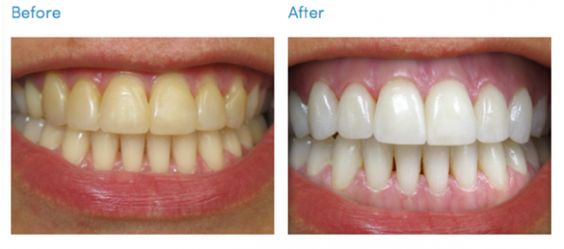
Scaling & Polishing treatment
Teeth scaling is recommended once in six months. It helps to treat problems like gingivitis, bad breath and effects on the heart too.
If you are in search of a dentist who will attend to your needs, you cannot go wrong with our practice. Contact our office at your earliest convenient to schedule you consultation. We look forward to serving you and your family for many years to come.
View Deals offered by Smile Up Dental Care and Implant Center
Read more... 0 comments

Smile Up Dental Care & Implant Center
November 26, 2016
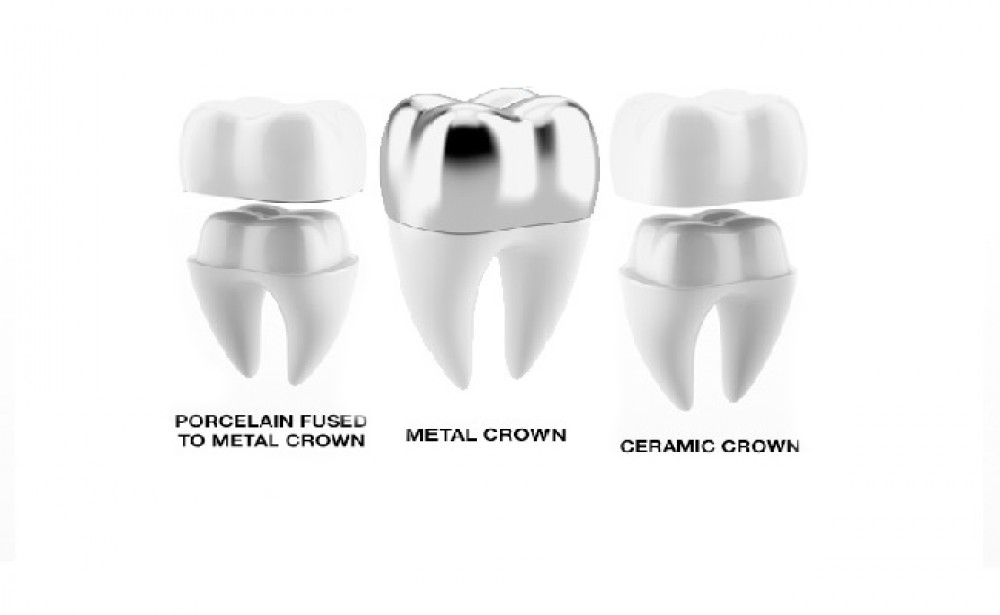
What you Need to Know About Dental Crowns
After a root canal there are several options for restoring the appearance of the affected tooth. In cosmetic and restorative dentistry, dental crowns are the preferred restoration technique as they not only restore but can also improve the outward appearance of a tooth. Most often this procedure bolsters damaged teeth but is also employed to disguise dental flaws such as teeth that are misshapen. Custom porcelain crowns are quite common today and are made to completely blend in with surrounding teeth. As with every dental procedure, there are benefits and what some patients might consider drawbacks.
Benefits of Dental Crowns:
Crowns improve the appearance of teeth. When used for this application they can:
- Conceal a dental implant
- Change the shape of a tooth to match those that surround it
- Correct discoloration caused by illness or medication
As a restorative solution, dental crowns may be used to:
- Restore teeth after undergoing a root canal
- Protect worn teeth from further erosion
- Support teeth decayed through neglect
- Anchor a dental bridge to surrounding healthy teeth
Caveats to Consider Regarding Dental Crowns:
- Temporary or permanent sensitivity to hot and cold foods and beverages
- Discomfort when chewing
- Gum tenderness
- some patients may experience an allergic reaction to the materials used in this process
Replacement:
- dental crowns usually last for up to 15 years before requiring replacement
Allergic Reaction:
View Deals offered by Smile Up Dental Care and Implant Center
Read more... 0 comments

Smile Up Dental Care & Implant Center
November 26, 2016
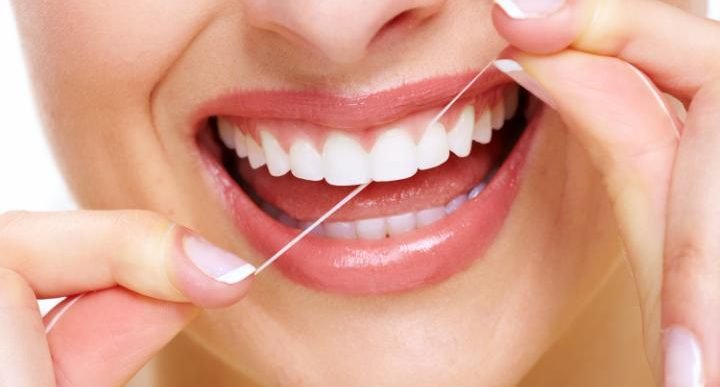
Why Should I Use Dental Floss?
Dental floss helps to prevent gum disease by getting rid of pieces of food and plaque from between your teeth. Plaque
is a sticky substance made of bacteria. If it builds up, the bacteria can irritate the gums and cause inflammation.
If your dentist advises you to clean between your teeth (interdental cleaning), they may recommend using dental floss.
How to Use Dental Floss?
Dental floss is a thin, soft thread made of nylon or plastic that removes food and plaque from between your teeth. Many people find dental tape, which is thicker than floss, easier to use.
If you use dental floss incorrectly, it can damage your gums. You should therefore follow your dentist's advice about using dental floss, including how often you should use it. The tips below may also help.
Cut off a section of floss about 45cm (18 inches) long. Wind it around the middle fingers of each hand.
Grip the floss with your thumb and forefinger of each hand so that the floss between your hands is about 2.5-5cm (1-2 inches) long. Pull it tight so you can insert the floss in a gap between two teeth.
Gently guide the floss up and down against the sides of the teeth and under the gumline. When the floss reaches the gumline, curve it into a C-shape against the tooth until you feel resistance.
Hold the floss against the tooth and gently scrape the side over it, away from the gum. This will help you to floss under the gumline without causing any damage.
Repeat this process for the next gap, along the side of the next tooth.
Make sure you floss between every single tooth. Working to a pattern round the whole of your mouth makes it less likely that you'll miss out any teeth.
Remember to floss the side of the teeth at the back of your mouth.
What if My Gums Bleed?
-
When you first start flossing, your gums may be tender and bleed a little as you start to get rid of any plaque build-up. Carry on flossing your teeth and the bleeding should stop, as your gums become healthier.
If you're still getting regular bleeding after a few days, see your dentist. They can check if you're flossing correctly.
What if I find flossing difficult?
-
If you find holding the floss difficult, you could try using a floss holder (sometimes called a flosser) or an interdental brush. These hold the floss for you and some people find them helpful. Some people find interdental brushes easier to use than floss. You can buy flossers and interdental brushes from pharmacists (chemists) and supermarkets.
If you find flossing difficult, your dentist can give you advice about other ways of cleaning between your teeth.
View Deals offered by Smile Up Dental Care and Implant Center
Read more... 0 comments

Smile Up Dental Care & Implant Center
November 26, 2016
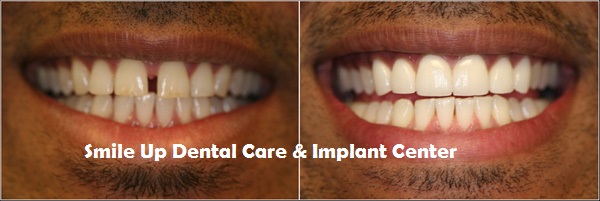
Are you having Gaps in your Teeths!
Is Your Smile compromised with a gap?
Children’s teeth develop gaps as they grow because their jaw is getting bigger and their baby teeth remain the same size. Children may have temporary gaps as their baby teeth start to fall out. This is normal and should not cause any alarm.
Gaps in adult teeth are referred to as diastemas. Diastemas appear most often between the two upper front teeth, though they can occur between any two teeth. Diastemas are also normal (take Mike Tyson for example) and like gaps found in children, may result from a mismatch between jaw bone size and teeth size.
Other than Normal sizing issues, There are Three reasons why gaps may form:
Tumor Growths:
A gap can be a sign of a serious medical or dental condition. Tumor growths may need to be treated surgically. Gum disease.Gum disease, which results in a loss of bone that supports the teeth, may be prevented by regular brushing and flossing. However, if a gap is forming as a result of gum disease, you need to see your dentist as soon as possible. Self-inflicted behavior. These gaps occur when people push their tongue against their front teeth when swallowing or as a result of ‘mouth jewelry’. This pushes teeth forward and makes small gaps bigger. Again, if a small gap is getting bigger, have your dentist check it.Perfect Your Smile as Below Mentioned ways:
Bonding:
If the space between teeth is relatively small, dental bonding can be a solution. In dental bonding, a resin-based substance is applied to the tooth, sculpted and shaped to fill in gaps. This process forms the tooth to the overall look of your mouth. Often, bonding can be completed in one dental visit.Veneers:
Fixing bigger gaps may require reshaping. With veneers, the tooth is shaved down to provide a surface that can be covered with porcelain, which is then specifically shaped to match surrounding teeth.Traditional Braces:
Orthodontic braces are the most widely used method to help tighten teeth and eliminate gaps. This process can take several years.Invisalign Braces:
Invisalign uses a series of clear, plastic retainer-like devices to gradually realign the positioning of teeth. This discrete process can take anywhere from several months to several years and is generally more expensive than traditional braces.View Deals offered by Smile Up Dental Care and Implant Center
Read more... 0 comments

Smile Up Dental Care & Implant Center
November 26, 2016
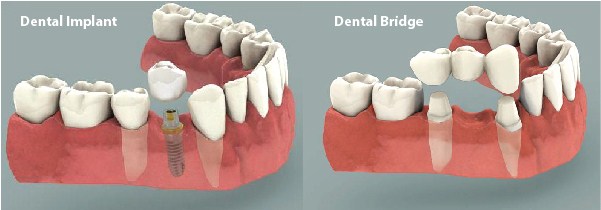
Dental Bridge vs Implant Which one should I get
Teeth Replacements have come a long way in the last 30 years. Missing or extracted teeth raise common concerns of infection, but the proper replacement is the key to a confident smile. Today, however, the questions you need to ask your dentist or prosthodontist are a bit different: What's the difference between a dental bridge vs. implant? Which treatment option is right for me? Very often the dental implant is ideal, but numerous factors will need to be considered first, including if your tooth loss is recent or happened years ago.
Practical Reasons For Both
In the past, a bridge was your only choice, and still involves more than just the missing tooth. The adjacent teeth need to be "prepped" by removing most of the enamel in order to fabricate the bridge. With dental implants however, the dentist replaces just the individual tooth for a result that is stronger and permanent. Nonetheless, a dental bridge may be your best option if the neighboring teeth have large fillings and need crowns or caps in the future. And if the tooth or teeth have been lost for a long time, the gum and bone will have receded and procedures beyond the implant are required before placement. The advantages and disadvantages to both procedures can ultimately be discussed with your dentist.Changes In Your Oral Care Routine
Your Ability to keep your mouth healthy will be easier with an implant. Dental bridges are cemented or "fixed" in the mouth, and involve at least three crowns connected together to fill the space of the missing tooth. This design creates challenges when brushing and flossing, so extra oral hygiene instruction and meticulous home care are crucial. When flossing, in particular, an additional step is needed to thread the floss under the false tooth. In contrast, implants can replace teeth individually without affecting other teeth, making regular home care more successful. You can effectively brush and floss around an implant just like your natural tooth.Durability
Dental Implants are more durable than bridges, allowing them to provide protection that lasts a lifetime. The implant's metal cylinder is normally made of titanium, according to the IDA and this material fuses with your jawbone naturally through a process called osseointegration. Because it's made of such a strong metal, they are very resistant to decay and gum problems. The average life of a dental bridge, on the other hand, is approximately 10 years. A portion of your natural tooth remains beneath it and normal wear may cause the bridge to fail more easily over time. In general, the remaining tooth structure continues to be susceptible to decay and gum disease.Aesthetics
What About Aesthetics? There isn't always a simple answer, but your dentist or prosthodontist – the latter specializes in crown, implants and bridges – will be able to advise you. Often the implant will provide the most pleasing result, as your dentist can make the final tooth look just like your natural enamel. Sometimes, an implant can be placed immediately after a tooth extraction, preserving the natural level of bone and improving the final appearance of the dental work.Dental Bridge vs. Implant Cost
The Cost of the dental bridge is initially less, but it may need to be replaced at some point in the future. Implants – from preparation to final placement – may seem more expensive, but over time can be more cost-effective. Fortunately, most dental insurance providers are paying for a portion of or all of the steps involved. In addition, implant treatment can be more flexible, allowing patients to budget the cost in increments. After extraction, for example, a bone graft is sometimes needed. This graft typically has to heal for several months before implant placement, at which point osseointegration can take anywhere from three to six months before the process is complete.So, Dental Bridge vs. Implant? Make this decision after consulting team at Smile Up Dental Care & Implant Center .We knows your mouth best and has the tools and knowledge to guide you through what's best for it. Although bridges are an older procedure, dental implants have become more commonplace over the years, and in most cases are the preferable treatment both in time and expense.
View Deals offered by Smile Up Dental Care and Implant Center
Read more... 0 comments

Smile Up Dental Care & Implant Center
November 26, 2016

Winter is Coming! How Changing Seasons can Affect your Teeth
Cold weather can be damaging to the body, making our lips chapped, dry and cracking our skin, and even causing us to suffer from tooth pain or sensitivity.
Many of us wonder if teeth also have winter blues because countless numbers of people notice that they usually feel sudden toothache or sensitivity during cold season. For this reason, it is certainly a must to learn more about treating cold weather-related tooth pain.
Luckily, there are useful tips on how to avoid tooth pain during the cold season, so you and your loved ones can still
enjoy your favorite winter activities:
When you go outside, see to it to have a hot beverage with you. This can greatly ease tooth pain as the teeth are warmed up with a warm beverage. Hot water will do as well.
As much as possible, consider breathing in and out through the nose. Breathing through the mouth will only bring the cold air directly in contact with the teeth. Please be guided that abrupt changes in temperature can trigger the toothache.
You should rinse with a fluoride-based oral rinse at least 2 times a day. For those with cold-sensitive teeth, fluoride-based toothpaste and mouthwash can be of great help.
Use desensitizing toothpastes if you have sensitive teeth. These help restrain the sensations which can cause the pain linked with sensitive teeth.
It is essential to know that tooth sensitivity can be caused by several reasons, and some of these consist of:
- Cracked teeth
- Infected gums or teeth
- Toothbrush trauma
- Defective bridge margins or crown with damages from the foods consumed on a daily basis and mouth acids
- Grinding or gnashing teeth
- Cavities
- Defective fillings where the gaps are open
- Gum recession
- Weakened enamel
- Large metal fillings
- Bite problems
- Teeth are sensitive and porous
- Periodontal disease
When should you visit your dentist?
While it is true that warming up the teeth during cold weather is quite helpful to relieve the sensitivity, take into consideration that it is imperative to see the dentist immediately if the pain lasts for several days. Keep in mind that persistent aching can be an indication of a serious dental problem such as gum disease or tooth decay. This makes it even more essential to consult your dentist to prevent further problems from occurring.
Your dentist can provide you with sensitivity medications or an appropriate dental treatment to ensure you can finally say goodbye to tooth pain and be able to enjoy your most preferred ice cream flavor again after the cold season ends.
View Deals offered by Smile Up Dental Care and Implant Center
Read more... 0 comments

Admin
October 19, 2016
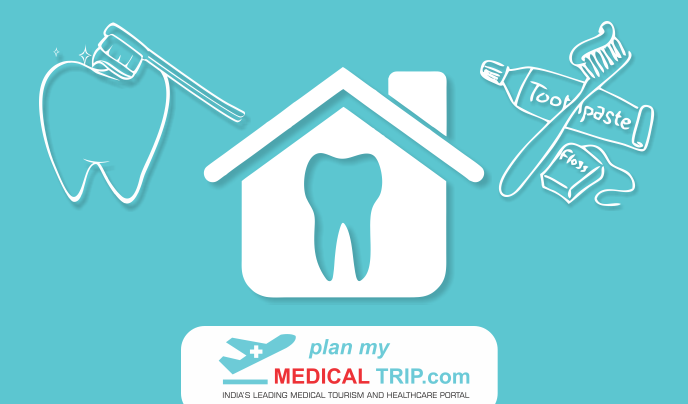
6 Simple & Effective Dental Hygiene Tips
Whether it's for that million-dollar smile or in order to avoid and prevent frequent trips to the dentist, good dental hygiene is extremely essential! Although regular trips to the dentist and scheduled teeth cleaning appointments are a must, here are 6 simple dental hygiene tips that you can follow on a daily basis for good oral hygiene.
1). Effective Brushing
Nothing beats the benefits of brushing your teeth twice daily. It's one of the most essential dental hygiene tips to follow! We've all heard since childhood how it's important to brush teeth immediately after waking up and before going to bed. Several of us tend to get quite lazy and avoid brushing out teeth at night; in that case, if brushing at night is not possible, one must at least rinse the mouth vigorously. This will help prevent bacteria that hamper dental hygiene.
2). Limiting Intake of Sodas and Caffeine
Beverages like sodas and coffee or alcohol contain phosphorous; a high level of phosphorus intake is harmful to the teeth. Consuming an excess quantity of these drinks could lead to problems like tooth decay, gum disease and discoloration of teeth. Thus, it's important to keep this particular dental hygiene tip in mind and limit the intake of aforementioned beverages for good oral hygiene.
3). Flossing
Flossing is a great way to get rid of food particles that can neitherbe reached by regular brushing nor by using a mouthwash. It may seem like quite a task, but flossing at least once a day is strongly recommended by experts as an added dental hygiene tip.
4). Using a Mouthwash
Ideally, it is recommended to use a mouthwash after eating any meal. Mouthwashes containing Listerine are extremely effective as they help in killing the bacteria in the mouth and ensuring that the teeth are strong. Moreover, they are also quite helpful in maintaining fresh breath. When coupled with brushing and flossing, a mouthwash is an additionally beneficial dental hygiene tip.
5). Cleaning your Tongue
Using a tongue cleaner every day is another simple yet very effectivedental hygiene tip to ensuring good breath and overall oral hygiene. Countless bacteria can be removed by using a tongue cleaner, especially those on the top surface of the tongue.
6). Increasing Calcium Intake
What you eat also has a major role to play in terms of your dental hygiene. Plenty of calcium is required to keep the teeth strong. In order to maintain the health of teeth and gums, adequate intake of calcium is necessary. One can opt for milk, yogurt and cheese amongst other dairy products.
If you'd like to know more about dental treatment in India, you can read about the same here
Dental Treatment In IndiaRead more... 0 comments

Admin
October 17, 2016
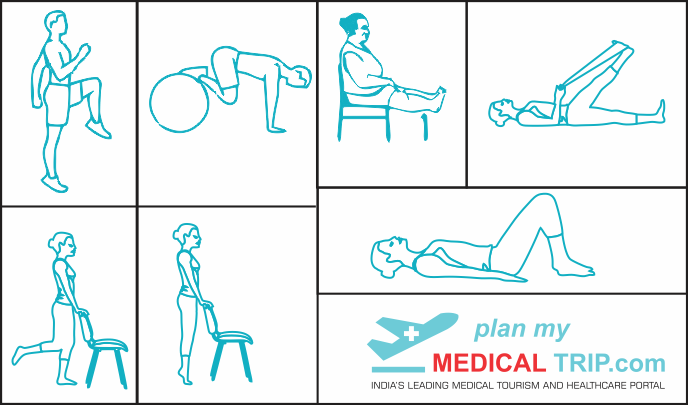
6 Ways to Avoid Knee Pain
Knee and hip replacement surgeries are two of the most common orthopedic surgeries the world over. The early signs of joint trouble become evident much before one is forced to undergo a surgery. These signs are an indication of underlying health issues, which, if detected early enough, can be taken care of well in advance. Irrespective of whether you're experiencing knee pain or not here are 6 ways to take care of your knees and avoid knee pain as well as replacement surgery in the future.
1). Good support
From simple brisk walking to playing physically strenuous sports, wearing good-quality shoes is extremely important. In fact, one should always ensure to wear the right kind of footwear that is well-fitted. Furthermore, knee braces and knee caps too are available in the market that provide support in the right places. This is a great way to start taking care early on in life and ensuring you have healthy knees.
2). Keep Weight in Check
Going by simple logic, extra weight means increased stress and pressure on the knees. It is estimated that mere one pound body weight exerts approximately three to seven pounds worth of extra pressure on the knees. Opting for a balanced diet in addition to gentle exercises like swimming if you would like to avoid knee pain with age.
3). Eat right
The adequate and right intake of vitamins and nutrients is extremely important to maintain healthy knees. Vitamin C and Vitamin D in addition to vitamin K are good for the knees. Ensure a daily intake of milk and other dairy products along with greens including kale, spinach and cabbage. Another important tip is to quit smoking if you are somebody who smokes regularly. This is because smoking displaces 20% percent oxygen from the hemoglobin; this displaced oxygen is what tissues require when an injury is healing.
4). Remain active
It is essential to take up recreational activities that make your leg muscles and knees stronger.Simple lifestyle changes like cycling to work and taking the staircase are great ways to incorporate gentle activity in daily-life. Swimming is another excellent way to build knee flexibility and strength. Yoga can also be practiced for toning the leg muscles and preventing knee pain with age.
5). Don't skip stretches and warm-up
Exercising sensibly is vital in keeping the knees healthy. Warm-up before exercising helps increase blood flow to the muscles and joints. The risk of injury is greatly reduced when the joints move freely and muscles are stretched. Whether exercising or not, stretching the body regularly is vital in ensuring that the knees are in good condition. Stretching helps to balance the tension in the body.
6). Do not ignore the symptoms
Whether it's recurring pain or the inability to move the knee, early diagnosis is a key step in preventing severe damage to the knee joint in the long-term. It is vital to seek help right away when experiencing knee pain. However, if your only option is to opt for a knee replacement surgery, you can look up this article for more details,
Knee Replacement in IndiaRead more... 0 comments

Admin
September 23, 2016
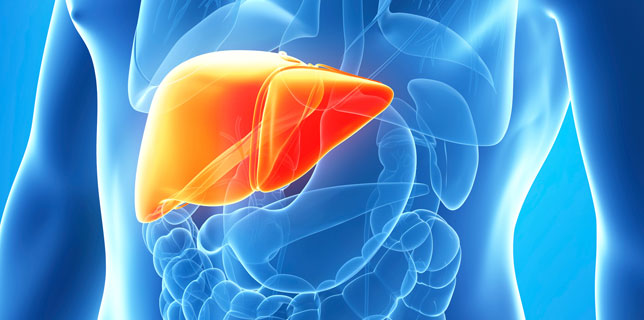
Liver Transplant in India
Liver Transplant in India: Cost, Statistics & Rules
Liver transplants are being conducted since decades now and have always proven to be the best way to treat cirrhosis, cancer, etc. The success rates are getting only more optimistic, taking liver transplants the way ahead.
A lot of patients die every day around the world either because they don’t find a donor or because they don’t have the financial capability to get treated. This is a sad truth, specially because there are a lot of other options that can be utilized, like getting treated in a market that is less costly, for example, India. The cost of liver transplantation in India is one twentieth when compared to USA and several European countries.
As far as the medical infrastructure is concerned, India has several leading hospitals and leading institutes which patients can choose from. Dr Soin, India’s best liver transplant surgeon, has done more than 1000 transplants alone. He has also done the second highest liver transplants in the world. With doctors like these, there can be little doubt that India is a leading medical tourism destination for liver transplants.
Post surgery care, which requires hospitalization at least up to a week, can be cheaper in a market like India. It can also be better, since India is known as the center of healing, spiritual and otherwise. Here are few more facts that you should know if you’re considering getting operated in India.
- The donor operation carries complication rate of 10-15%.
- The recipient is successful in 90-95%.
- The donation is done without any coercion.
- There is no financial gain related to donation.
- The donor has the right to withdraw at any time, without giving reasons.
Read more... 0 comments

Admin
September 23, 2016
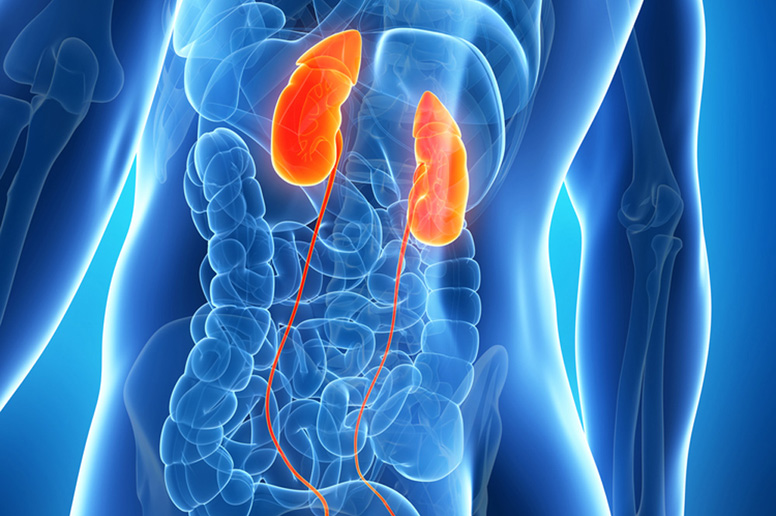
Kidney Transplant in India
Everything you Wanted to Know about Kidney Transplants in India
Kidney transplants honestly haven’t got the awareness that they deserve. Organ donors are shying away even today and there isn’t much information available about the same. In this article, we’ll throw some light on statistic revolving kidney transplants in India and why they need to be promoted further.
12 people die each day in the United States of America while waiting for a life-saving kidney transplant. This shows us that there is a huge gap or imbalance between demand and supply, harshly put, into life and death. Most transplants are done by organs donated by deceased donors. This number has to increase but isn’t. In such a case, it makes more sense to look outside the current market. This brings us to India.
Kidney Transplants in India Statistics
In the year 2004, India completed a total of 1214 kidney transplants. The figures are looking only positive since then. What’s more? India ranks 2nd in terms of transplants from live donors. The price of a kidney transplant in India is almost half of what it would cost in the US. The infrastructure and facilities are all top-notch and often beat those in the international market.
Kidney Transplants in India Cost
A transplant in India for an organ like a kidney would cost anywhere between four to seven lakhs (private hospitals) depending on various factors such as age of the patient, post renal care that is going to be required, etc. This cost of the organ is not included in this because sale of organs is not allowed in India. The hospitals can charge only for hospitalizations, operations, transplants, other medicines, etc.
It is said that a patient mostly waits well above three years to find a kidney. 2000 people or more get added to the waiting list every day. Why then, don’t we look beyond the local market and save more lives
Read more... 0 comments

Admin
September 23, 2016
Medical Visa India
Read more... 0 comments

Admin
September 23, 2016
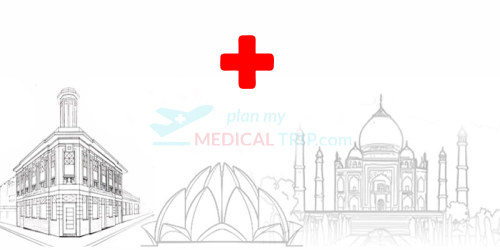
Medical Trip in India
Things to Know Before Undertaking a Medical Trip in India
Every year, India welcomes millions of tourists. Some come to witness the grandeur of this country; some come to work; while some come to experience alternative therapies such as yoga and Ayurveda. An increasing number of people are making trips to the country now to seek medical treatments at a lower cost. It is very important that everyone who is making a trip to India, for whatever reasons, is familiar with a few very important necessities. We’ve listed these for you in this article.
Vaccinations
It is very important that you are properly vaccinated before you come to India. Some of the suggested vaccinations when you take a medical trip to India are Hepatitis B, malaria, Japanese Encephalitis, Rabies, and Yellow Fever. It is very important that you consult your healthcare physician before you take any of these. Few other suggestions would be to reduce your exposure to germs, keep away from animals, etc. Also, if you are traveling to undertake a surgery in India, it is advised that you consult your doctor for further vaccinations.
Safe Transportation
If you are traveling in India, it is very important that you use safe modes of transport. This is even more crucial if you are already diagnosed with diseases like cancer, where your body's immunity is already low. It is for reasons like these that you must always get in touch with us. We will ensure that your travel is taken care of and that it is comfortable and hygienic. This also includes travel to and fro from hospitals, clinics, etc.
Personal Security
While you are traveling to India, just like any other country, you must also ensure your personal safety. This involves keeping your passport safe at the hotel and carrying a photocopy instead. It is also very important for you to know the local laws and customs. Shall you wish to travel with us, this information will be provided to you beforehand. Other tips include not wearing expensive jewelry, not carrying too much cash, not carrying anything that is not replaceable, etc. Also protect yourself medically. This means, always carry the right sunscreen, a bug spray, common medicines that you might want to carry with yourself, mineral water in emergencies, etc.
Important Numbers
While you are in a foreign land, whether or not there is a chance of emergencies, you must always have important numbers stored in your cellphone. For example, dial 100 or 112 from your cellphone to call the police. Search for your embassy address and keep it with you along with respective phone numbers.
Personal Information
Though it is a very rare possibility, there might be a circumstance wherein you would want to tell your name or if something happens to you, someone would want to contact someone. Have all this information written down on a piece of paper in the local language.
Shall you need any kind of help while traveling to India; send us your queries to info@planmymedicaltrip.com.
Read more... 0 comments

Admin
September 23, 2016

Medical Treatment in India
Medical Treatment in India for Foreigners
The medical tourism sector will grow from approximately USD 3 billion in 2014 to USD 6 billion by 2018.-Punjab Haryana Delhi Chamber of Commerce and Industry
The Indian medical tourism sector is experiencing continuous growth because of low cost of healthcare services, its position as a medical hub in South Asia, and mainly because of strong government support. The Indian government is taking promotion of its offerings in medical and tourism actively. The Ministry of Tourism has launched a new helpline, for now in 12 foreign languages, 1363 or 1800-111-363 to help foreign tourists and guide them after their arrival in India.
Another property under the name 'Atithi Devo Bhava' has been launched. This is to improve the local market’s perception of tourists who come from abroad and to make their stay more comfortable. With this, the National Tourism Authority is coming up with the first national tourism plan for 14 years.
Why Foreigners are Choosing Medical Treatment in India
There are many reasons why India is the first choice for foreigners to undertake their medical treatment. We have listed few of the most important here.
Cost
There is no doubt that India is an inexpensive market when it comes to medical tourism. Surgeries are done at much less than half the cost. However, there is no compromise on the infrastructure or quality of doctors. This makes it a perfect destination to get treated. Also, the competitive costs in India are unmatched. Which means, almost no other country has provide such costs, impeccable infrastructure, and such a large-scale of hospitals and clinics at the same time.
Location
India is geographically placed almost in the centre of the world. This makes it very easy and affordable for foreigners to travel to. Also, good connectivity by air makes it comfortable for patients to travel. Most of India’s main cities are well-connected to International destinations. India is also close to the Gulf region, which is said to be one of the unhealthiest regions in the world.
Good Supply of Doctors
India has some of the best doctors that cater to various categories. The numbers in which India produces doctors is also mindboggling. This means, that there is never a waiting period to get operated. Of course, the number of experienced doctors is also very high.
Alternative Therapy
India is a hub for people who seek alternative therapy such as yoga or ayurveda. A lot of surgeries require patients to rehabilitate before they travel. It is easier and cheaper to do so in a country like India. People from all over the world have been drawn to the mystical land of India for these therapies. The natural environment only improves the condition of the patient.
NRI Population
India has a very high NRI population. According to studies, these groups find it more comfortable to get treated in their home country. Cost of surgeries, however, remains the main reason. The countries they actually reside in, become grounds where foreigners can learn about surgeries in India on first-hand basis.
Due to these reasons the medical treatment available in India is unmatched. Shall you want to enquire more about the Indian medical market, feel free to contact us through info@planmymedicaltrip.com.
Read more... 0 comments

Admin
September 23, 2016

Medical Tourism in India
India has been the focus of Medical Tourism since a long time now. The reasons for this are many. For instance, India is an extremely cost-effective market. Surgeries in India sometimes cost one-tenth of what they would in western countries. Also, the waiting period in India is very less as compared to certain other countries. For example, if bulk demands are generated during the holiday season, India has the capacity to fulfill all those needs.
Second reason for this growth is India's geographical location. India almost lies in the center of the globe, making it easier for patients from all over the globe to travel only halfway across the globe at the max. Secondly, India's proximity to the Gulf region-which happens to be the unhealthiest region in the world-is also reason for more patients coming into the country.
Fourth reason for this growth is the number of doctors that pass out every year in India to join experienced doctors as trainees. Medical staff-be it nurses, trainees, or even admin-is available in India in bulk. This helps in shorter span of waiting for appointments, etc.
Fifth reason for this exponential growth is India's specialized strength in alternative therapy. Everyone around the world knows that India is famous for therapies such as yoga. This means that patients can get rehabilitated in India without having to spend a lot. Sometimes, patients aren't allowed to fly back after surgeries; this point adds more reason for patients to come down to a country like India.
Sixth reason why medical tourism in India is on the rise is because it hosts a high NRI (Non-Resident Indian) population. Studies say that people prefer getting treated in their own country than in a foreign country. India welcomes such NRIs every year. This group does not come under the government's statistics of medical tourists, as they don't come on a medical tourism visa. They find it increasingly comfortable-financially and emotionally-to seek treatment in their own country.
All the reasons mentioned above are leading reasons why medical tourism in India is increasing manifold. The growth of this industry is almost doubling; investors all over the world are taking dynamic interest in this segment.
Various destinations in the country, such as the states of Gujarat and Maharashtra are being developed to host better facilities and infrastructure, to cater to a higher number of tourists.
We must not forget that medical tourism in India isn't an alien concept. All the people who migrated abroad, whether as IT professionals to the US or as workers to the gulf, came home frequently for their medical needs. From this concept, that came out of nothing but natural instinct, was born the contemporary concept of medical tourism.

 0
0
